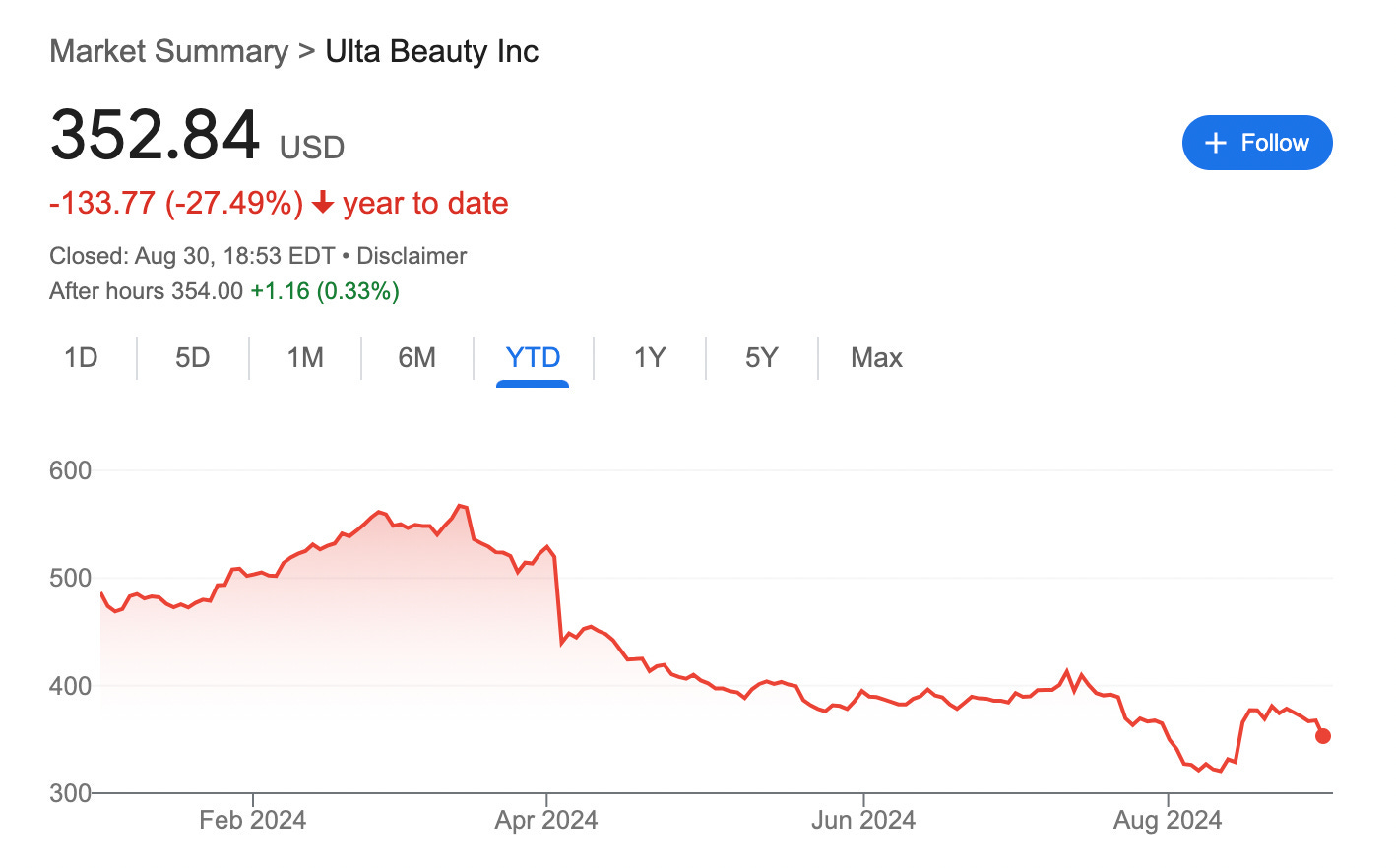ULTA Earnings Review: Undervalued Enough!
ULTA earnings were not great but this was highly expected. However, I think the business fundamentals still strong and doesn't deserve such undervaluation. It's still a strong buy for me!
Ulta missed earnings and the stock gave back much of the boost it gained after Warren Buffett disclosed a position. I think that was pretty exaggerated:
It posted $2.55 billion revenue vs. $2.61 billion expected.
Earnings per share was $5.30 vs. $5.46 expected.
Let me be straightforward with this:
Ulta earnings weren’t great.
It’s still a great business at a…



